Covid-19: NI vaccination passport service back in action
- Published
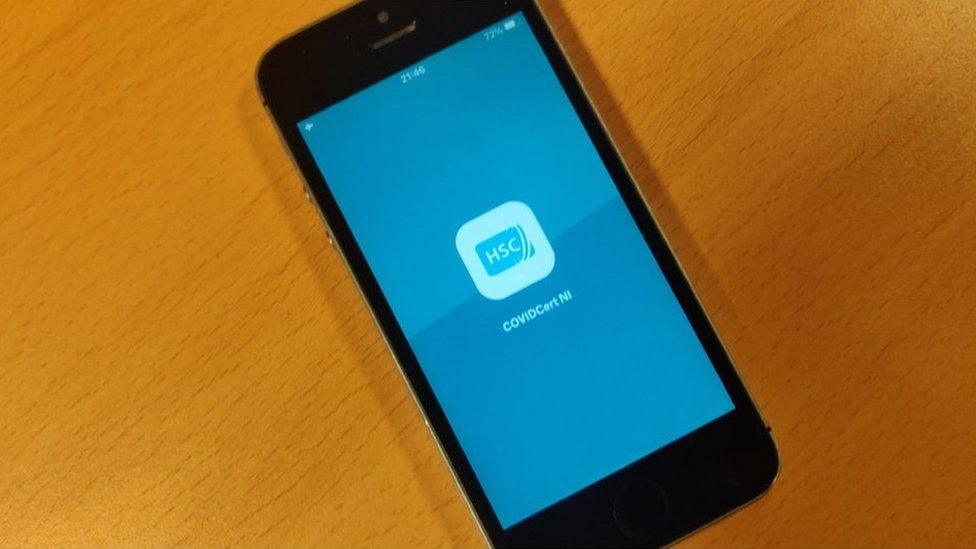
The aim of the CovidCertNI system is to allow people to show they have had two doses of a vaccine
Northern Ireland's Covid-19 vaccination certification system is back up and running but only to people who are travelling abroad on Sunday and Monday.
People who intend to take an international flight in the coming days require official proof that they have been fully vaccinated against Covid-19.
Those who are travelling on Sunday should get an email inviting them to apply for and download a certificate.
Anyone leaving after Monday should not use the system yet, said officials.
They said increased traffic on the site may mean others cannot get their certificates on time.
"We would appeal to those travelling outside of the dates advised that they do not apply at this time and help us help their fellow citizens," said the Department of Health.
The system, which can be accessed through the NIDirect website, external, had been offline since last Tuesday amid concerns about some users being able to see other people's information.
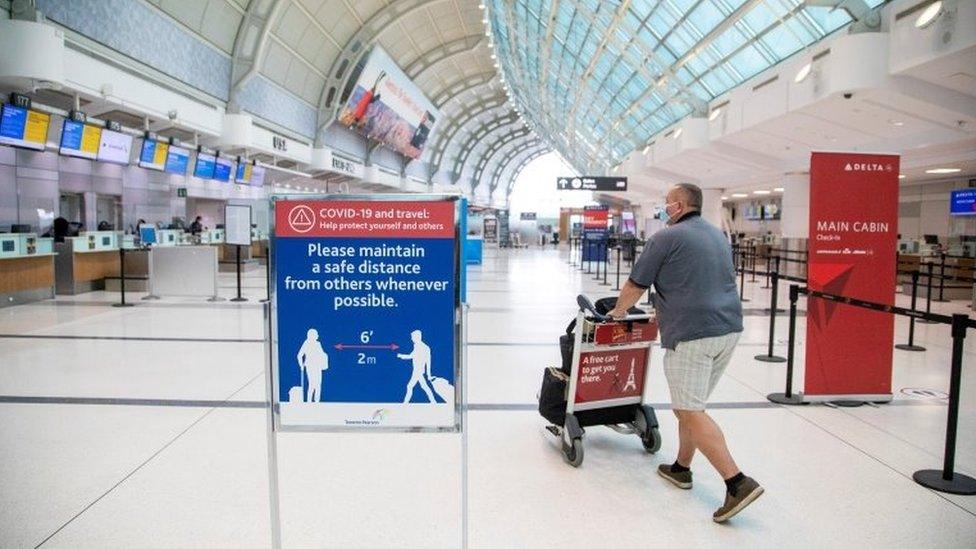
Vaccine certificates are required by people who are travelling abroad and need to prove their vaccination status
On Saturday morning the official in charge of it was confident it would be working again later in the day.
Dr Eddie O'Neill of the Department of Health had said efforts to fix the technical problems with the system were "going well".
The data breach that caused the suspension has been reported to the Information Commissioner's Office, which says it is assessing what happened.
Emails began to be sent out on Saturday evening, inviting those travelling on Sunday to log in to complete their applications and download their certificates.
'An entire debacle'
Melanie Dougherty, whose husband is due to fly to Lithuania on Sunday for hip surgery through the EU cross-border scheme, said she was stressed he had not yet received his vaccination certificate due to technical issues with the system.
"We thought we were all set up, ready to go until this Covid passport system was such a disaster," said Mrs Dougherty, who is from Ballymoney, County Antrim.
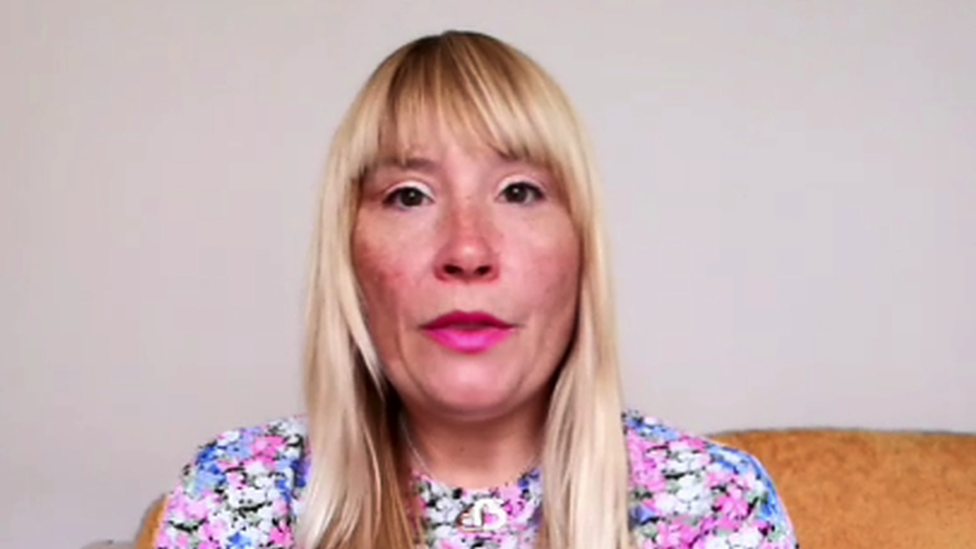
Melanie Dougherty said the Covid passport application system had been stressful as her husband prepared for surgery
"We really don't know what to do at this stage - this has been an entire debacle.
"We can't provide the surgery in Northern Ireland and we can't even provide an IT system that allows Northern Ireland citizens to go elsewhere to get the surgery so we are massively disappointed.
"This is essential travel - he really needs this hip replacement."
Mrs Dougherty said they had been advised on Friday evening that the issue with her husband's certification should be rectified within 24 hours.
On Saturday evening she tweeted to say that she and her husband had received their certification, adding: "Bring on the new hip!"
What went wrong?
On Tuesday evening the Department of Health announced that its vaccination certification service had "experienced a technical difficulty and availability will be temporarily interrupted", external.
The department added that it was "aware that a limited number of users... may be presented with data relating to other users".
Of Friday, when asked about the security problems, Dr O'Neill said: "The problem wasn't actually in anything that we built."
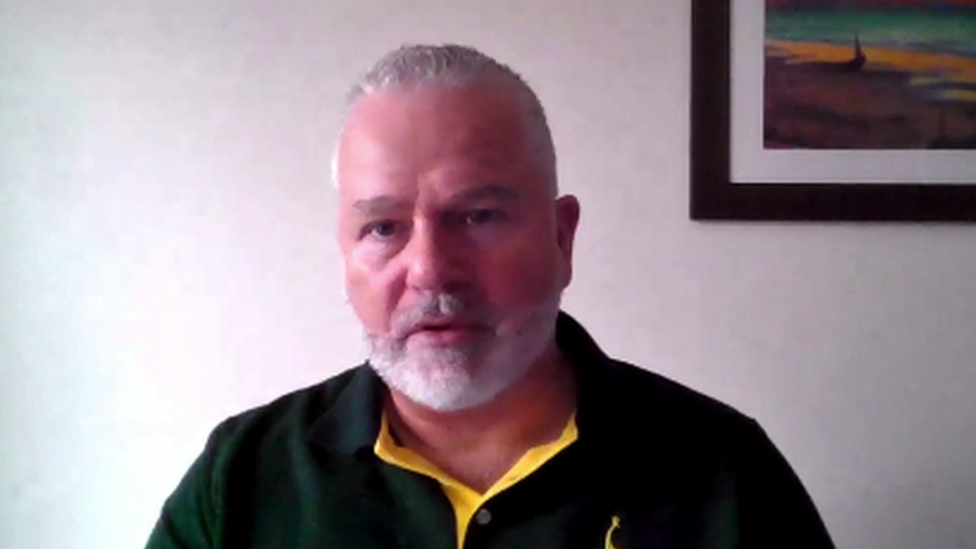
Dr Eddie O'Neill says people are working hard to repair the certification service
He said that the system is using the NIDirect website's identity facility, through which people can set up a personal user account to access services such as driving licence renewals.
"It was never built for the scale of applications that we've been getting - thousands and thousands - and as a result of that just one of the components in the back end just failed.
"We've had to build it from scratch, rebuild with a different company to try to make sure we have something that will flex.
"It's with best endeavours that we've been doing this.
"It's not a failure - I would actually say that we've done really well to get something over the line."
How does NI compare to the rest of the UK?
Adults registered with GPs in England can apply for a NHS Covid Pass, external, which allows users to show proof of their vaccination, test or immunity status.
They are available to download through the NHS app (in England only) or applicants can request a paper document to be posted to their home address.
Holidaymakers in Scotland have been able to access a vaccine certificate since 19 May - it could be downloaded from an NHS portal or requested in the post through a freephone Covid status helpline.
However, the site suffered a security glitch on 22 May which enabled people to alter details on the document.
A fix was implemented on 25 May, which meant people in Scotland could only request the document be sent to them by post.
In Wales, public health advice still states that residents should "avoid international travel" but that is guidance rather than a ban.
Paper vaccine certificates have been available since May, and on 25 June the digital NHS Covid Pass became available for "urgent travel" only.
At that time, the Welsh government advised people to register to download the digital pass at least two weeks before they were due to travel abroad.
Unlike England however, residents in Wales cannot use the NHS app to access the NHS Covid Pass.
Instead they need to register for an NHS login which requires submitting photo ID such as a passport or driving licence.
Passport for access
First Minister Paul Givan has said he is cautious about introducing vaccine certification to allow people to gain access to public or private services.
He said it was a discussion the Stormont executive would have but that ministers would need to "weigh up the proportionality" before putting in such a requirement.
He claimed it could lead to the exclusion of some people who, for whatever reason through health or other genuine concerns, do not receive a vaccine.
"I think we need to be careful that we don't then have a society where these people are unable to access either public or private services and that's a discussion we'll have as an executive going forward, " added Mr Givan.
He also said he was not a believer in "mandatory" vaccinations but he said the issue of "incentivisation" was one the executive could look at.
Related topics
- Published28 July 2021
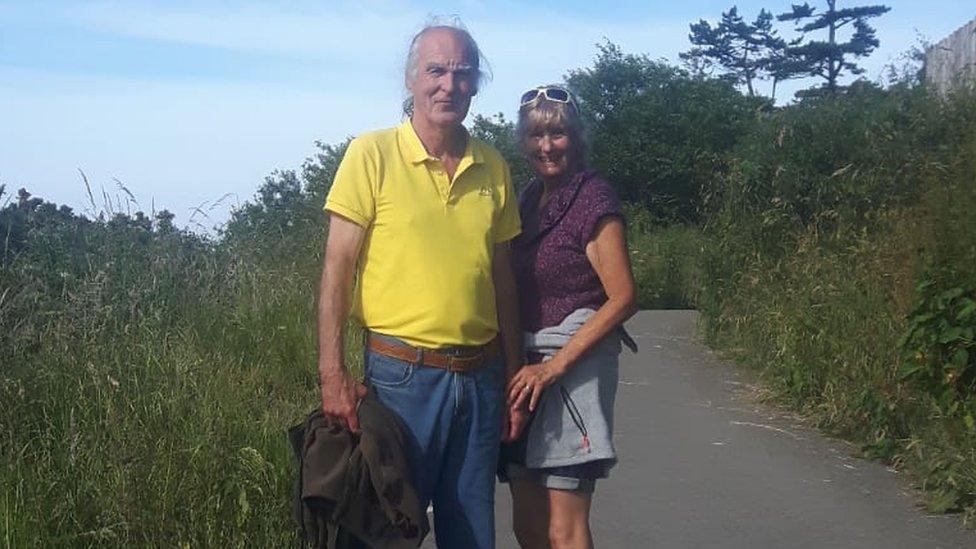
- Published23 July 2021
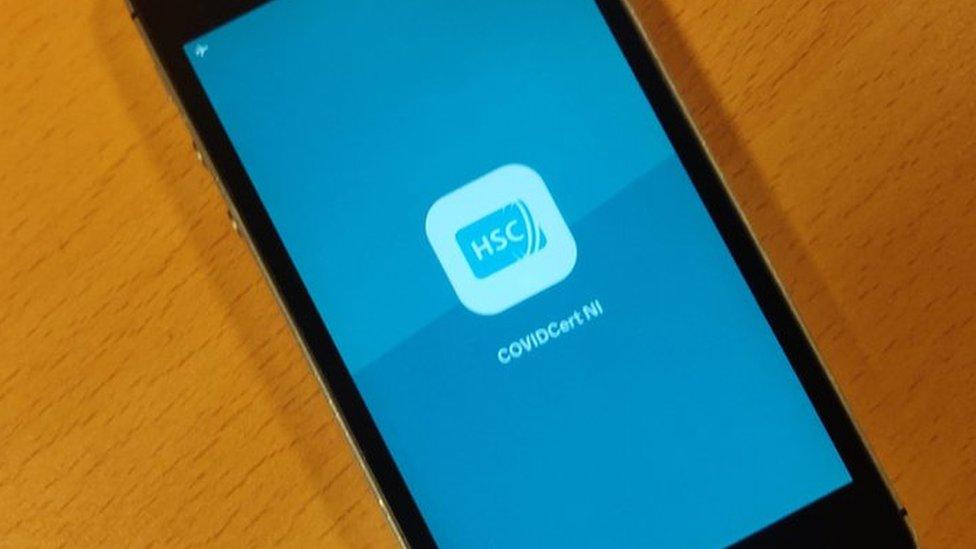
- Published16 July 2021
